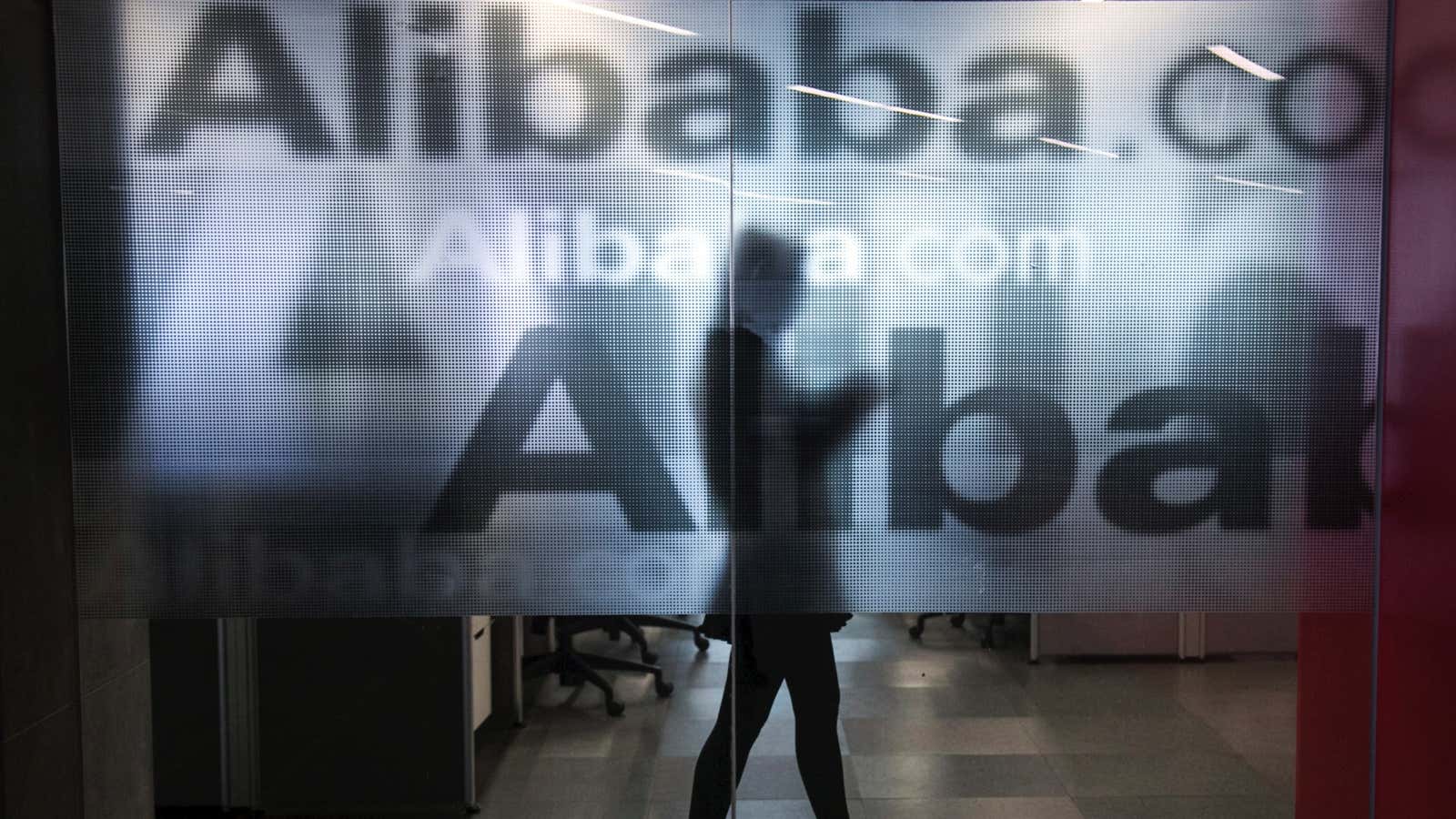China’s slowdown is weighing down Alibaba, an economic bellwether that is the country’s biggest e-commerce company. Its shares fell 8% in early trading after the company reported its lowest quarterly revenue growth in three years, missing analyst estimates.
Shares of Alibaba were already trading at their lowest point since the company went public in 2014, due to fears—justified by the results—that China’s weakening economy is hurting consumer consumption. The Chinese central bank’s decision to devalue its currency has also raised concerns that consumers will have even less purchasing power.
China’s huge economy—with its size, scale, and burgeoning middle-class customers—has been heralded as an unstoppable growth engine. So any slowdown is alarming to people betting on its success. Perhaps no one is more affected than Alibaba, whose identity and future prospects are deeply intertwined with the way that the Chinese shop, spend, and manage their money.
Alibaba CEO Daniel Zhang, who replaced co-founder Jack Ma in May, largely shrugged off his company’s stock-market woes on a conference call today (Aug 12), along with China’s currency devaluation, dismissing them as “short term movements” that wouldn’t impact the company’s long-term growth strategy.
Nevertheless, the company announced plans to repurchase up to $4 billion worth of shares over the next two years. Alibaba also discussed plans to expand its cloud-computing business, its recent $4.6 billion acquisition of brick-and-mortar electronics retailer Suning Commerce Group and its push to sell more foreign products and expand into other countries.
